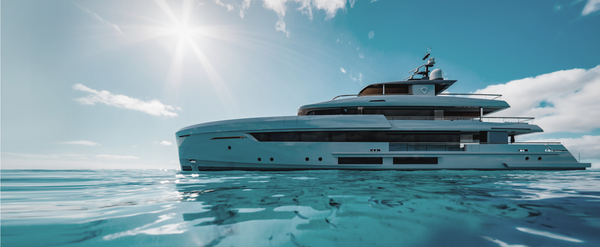How to Improve Your Credit Score Before Applying for a Boat Loan

A boat is more than a purchase: it’s a lifestyle shift. Whether you're acquiring a sleek weekend cruiser, a liveaboard trawler, or a long-range expedition yacht, boat loans and yacht financing can be a smart tool to preserve liquidity and unlock access to the right vessel at the right moment.
But your credit score plays a central role in the kind of loan offers you’ll receive. If you’re planning to finance a yacht or powerboat, now is the time to elevate your credit profile; not after you've found the boat of your dreams.
Why Credit Score Matters in Marine Financing
Marine lenders assess several criteria when considering your application: income, assets, debt-to-income ratio, down payment, and — importantly — credit score. A strong credit score may secure:
- A lower interest rate
- Higher financing amounts
- Longer repayment terms
- Faster approvals and more competitive offers
On the other hand, poor credit can lead to higher monthly payments or even rejection from traditional lenders. Fortunately, there are ways to improve your standing before applying.
1. Check Your Credit Report, Then Check It Again
Your first move should be reviewing your credit report in detail. Request reports from all three major bureaus (Equifax, TransUnion, Experian) and ensure all information is accurate. Look for:
- Outdated accounts
- Unfamiliar inquiries
- Errors in payment history
- Incorrect balances or delinquencies
If you find inaccuracies, dispute them immediately; even small mistakes can impact your score. Corrections may take 30 days or more, so starting early is key.
2. Pay Down Credit Card Balances Strategically
One of the biggest influences on your credit score is your credit utilization ratio: the percentage of your credit limits that you’re currently using. The lower, the better.
Aim to keep utilization under 30%, and ideally below 10% if you’re preparing for a significant financing request like a yacht loan. Start by paying down high-interest cards or those near their limits.
3. Avoid Late Payments: They’re Credit Score Killers
Your payment history accounts for roughly 35% of your FICO score. One late payment can drop your score by 50–100 points; especially if your credit profile is otherwise strong.
Set up autopay, calendar reminders, or mobile alerts to stay ahead of due dates. If you have any recent late payments, contact the lender to request a goodwill adjustment.
4. Don’t Close Old Accounts
If you’re tempted to “tidy up” by closing unused credit cards before applying; don’t. Length of credit history matters, and older accounts contribute positively to your score.
Keep long-standing accounts open and active, even with minimal use. Just make sure there are no hidden fees or annual charges.
5. Refrain From Applying for Other Credit
In the months leading up to your yacht loan application, avoid applying for other financing, whether it’s a credit card, auto loan, or store financing offer.
Each application results in a hard inquiry on your credit report, which can temporarily lower your score and raise flags for lenders assessing your risk profile.
6. Pay Down Installment Loans (If Applicable)
If you currently have auto, student, or personal loans, consider paying down the balances — especially if you’re near the end of the term. Reducing your total outstanding debt improves your debt-to-income ratio, which can directly impact marine loan approvals.
However, speak with a loan advisor before making large payments: preserving cash reserves may be more beneficial depending on your financial strategy.
7. Add Positive Credit History
In some cases, adding a new account, such as a secured credit card, and managing it well can help build positive history. This is particularly useful if you’re rebuilding after past issues. Just avoid adding too many accounts at once.
8. Consider a Co-Signer (If Credit Is Limited)
If your credit is still developing or recovering, a co-signer with strong credit can improve your chances of approval. This is common in yacht co-ownership arrangements or when one party has a higher income and established profile.
Keep in mind: your co-signer shares legal responsibility for the loan, so this should be approached with care and trust.
9. Partner With a Marine Finance Specialist
Finally, work with a marine financing partner that understands the nuances of yacht loans. YachtWay offers personalized financing solutions and can help you secure the best terms by presenting your financial profile in the most favorable light.
We also guide you through the pre-approval process: so when the right yacht appears on the market, whether you're looking for Miami yachts for sale, Annapolis sailing yachts, or a superyacht for med voyages, you’re ready to move confidently.
Ready to Start Your Journey?
Whether you’re shopping for a long-range trawler, a coastal cruiser, or a state-of-the-art catamaran, preparing your credit now sets you up for success later. A well-managed credit score is more than a number: it’s a key that opens the door to a smoother, faster, more luxurious acquisition process.
Want help navigating financing? Explore lending options or get pre-qualified today at YachtWay.com/boat-loans/.






